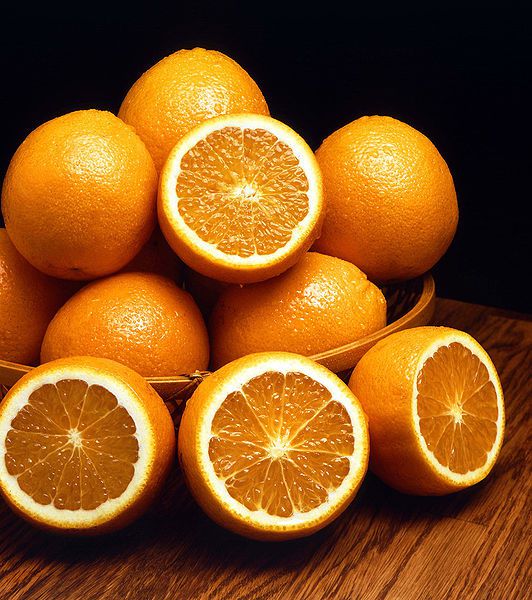-
 M17
M17
-
 Myeloid
Myeloid
-
 Aerobic glycolysis
Aerobic glycolysis
-
 Kohoutek comet
Kohoutek comet
-
 Stockholm Convention
Stockholm Convention
-
 Surfactant
Surfactant
-
 Potential energy
Potential energy
-
 Rosemary
Rosemary
-
 Progesterone
Progesterone
-
 Trackback
Trackback
-
 Plum
Plum
-
 Citrate
Citrate
-
 CD-TV
CD-TV
-
 White dwarf
White dwarf
-
 Dynamo
Dynamo
-
 Open fracture
Open fracture
-
 Southern right whale
Southern right whale
-
 Web of Trust
Web of Trust
-
 Giant magnetoresistance
Giant magnetoresistance
-
 Tectrix
Tectrix
-
 MON810
MON810
-
 Cnidaria
Cnidaria
-
 Forestry
Forestry
-
 Invertebrate
Invertebrate
-
 Convection
Convection
-
 Cirrostratus cloud
Cirrostratus cloud
-
 Neurone
Neurone
-
 Photochemical pollution
Photochemical pollution
-
 Adenocarcinoma
Adenocarcinoma
-
 Packet switching
Packet switching
Orange
Orange season
Oranges are a winter citrus fruit, grown on the coasts of the Mediterranean and in the warm regions of the world.
Nutritional values of oranges
The orange is a well-known source of vitamin C (53 milligrams per 100 grammes). It is less well known as a source of calcium (40 milligrams per 100 grammes), potassium, B vitamins and fibre.
Orange varieties
A round, orange fruit, oranges come in four main varieties:
- navel oranges are early (late October) and are seedless;
- common oranges have a light-coloured pulp;
- blood oranges have red skin and pulp and are found from December to April;
- late oranges (late winter) have few seeds and light-coloured flesh.
Choosing and storing oranges
Oranges can be stored for about a week at room temperature, or a little longer if kept in the crisper. Choose heavy and preferably untreated oranges if you want to use the zest.
 The orange is a citrus fruit eaten in winter for its high vitamin C content. © DR
The orange is a citrus fruit eaten in winter for its high vitamin C content. © DR
Latest
Fill out my online form.



